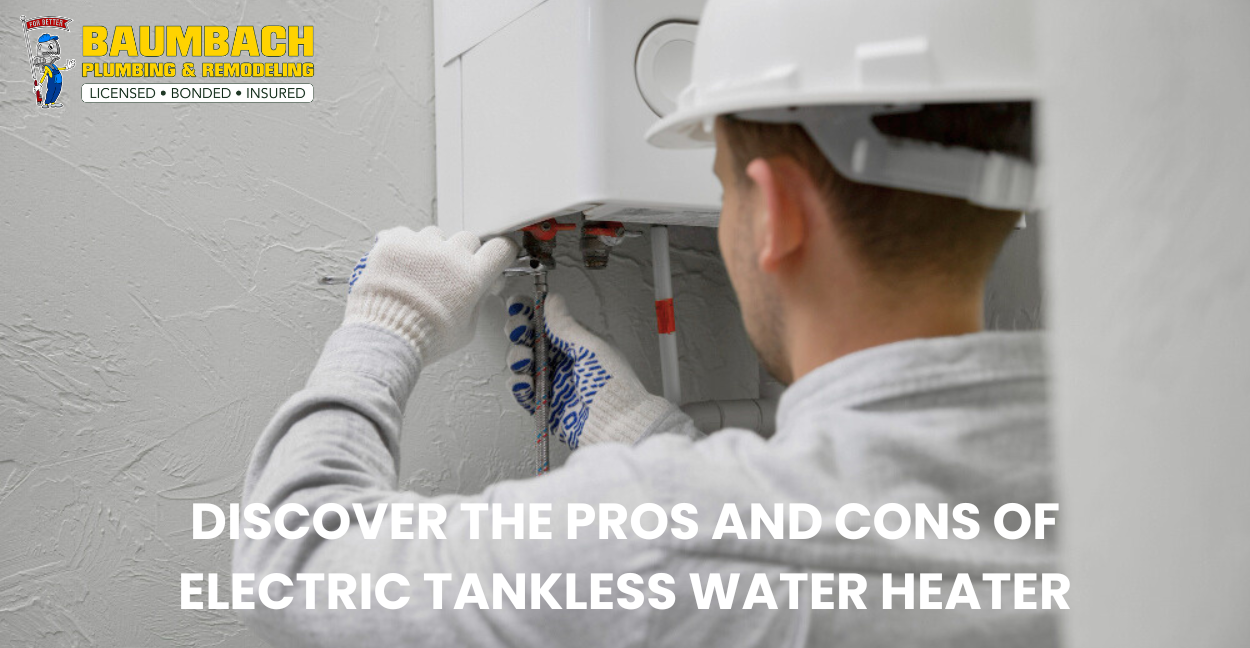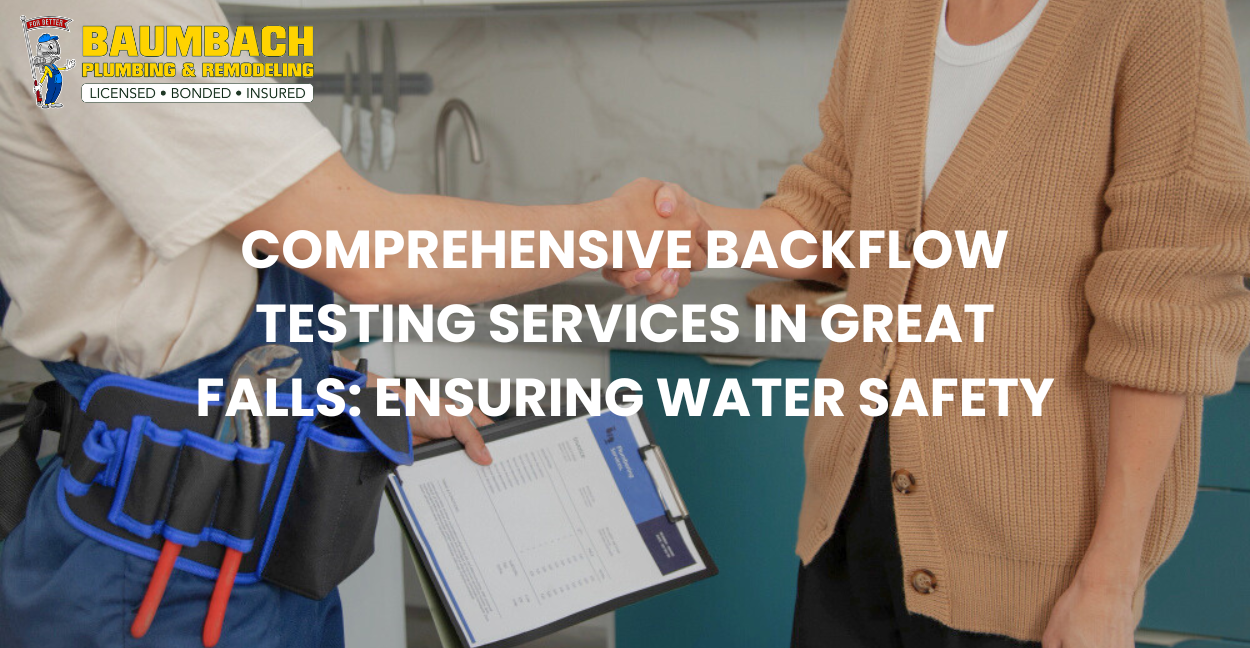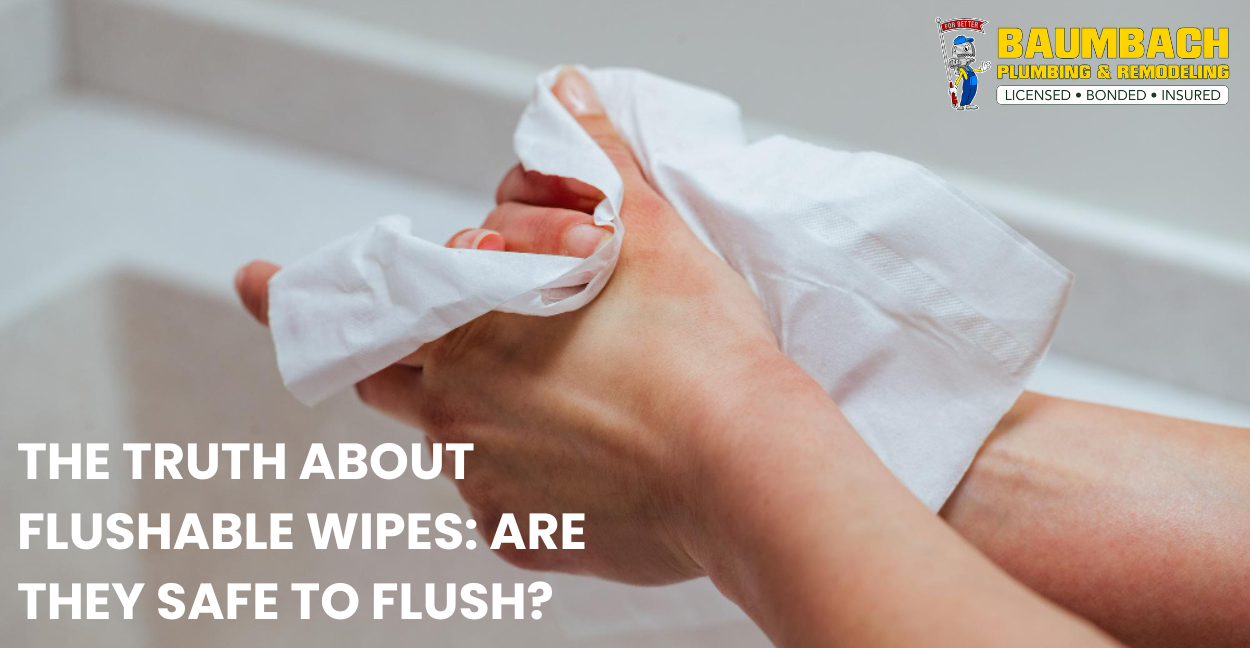Electric tankless water heaters have gained popularity as energy-efficient alternatives to traditional tank heaters. However, like any technology, they come with their own set of advantages and disadvantages. In this article, we’ll explore the pros and cons of electric tankless water heaters in detail to help you make an informed decision for your home’s hot water needs.
Pros of Electric Tankless Water Heaters:
1.) Energy Efficiency
Electric tankless water heaters are highly energy-efficient because they only heat water on demand. Unlike traditional tank heaters that constantly maintain hot water, tankless heaters don’t experience standby heat loss, resulting in lower energy bills.
2.) Unlimited Hot Water Supply
With a tankless water heater, you have access to an unlimited supply of hot water. Since the heating process is instantaneous, you won’t run out of hot water during long showers or multiple simultaneous usage scenarios.
3.) Space-Saving Design
Electric tankless water heaters have a compact and space-saving design. They can be mounted on walls, in closets, or even under sinks, freeing up valuable floor space in your home compared to bulky tank heaters.
4.) Long Lifespan
Tankless water heaters typically have a longer lifespan than traditional tank heaters. With proper maintenance, an electric tankless unit can last up to 20 years or more, reducing the frequency of replacements and associated costs.
5.) Reduced Environmental Impact
Due to their energy efficiency, electric tankless water heaters have a lower carbon footprint compared to tank heaters. They consume less energy, leading to reduced greenhouse gas emissions and environmental impact.
6.) Customizable Temperature Settings
Most electric tankless water heaters allow you to adjust the temperature settings according to your preference. This customization ensures that you get hot water at the desired temperature for different applications, such as bathing, dishwashing, or laundry.
Cons of Electric Tankless Water Heaters:
1.) Upfront Cost
Electric tankless water heaters generally have a higher upfront cost compared to traditional tank heaters. The initial investment includes the unit itself, installation costs, and any necessary electrical upgrades, which can be a barrier for some homeowners.
2.) Limited Flow Rate
While tankless water heaters provide unlimited hot water, they have a limited flow rate, especially in colder climates. Multiple high-demand fixtures running simultaneously may strain the unit, leading to a decrease in water pressure and temperature.
3.) Dependency on Electrical Supply
Electric tankless water heaters rely on a consistent electrical supply. Power outages or electrical issues can disrupt hot water availability, unlike gas-powered tankless heaters that can operate independently during outages.
4.) Potential Retrofitting Challenges
Retrofitting an electric tankless water heater into an existing home may pose challenges, especially if significant electrical upgrades or rewiring are required. This can add to the installation complexity and cost.
5.) Cold Water Sandwich Effect
In some cases, users may experience a phenomenon called the “cold water sandwich effect” with tankless water heaters. This occurs when there’s a brief burst of cold water between hot water cycles, which can be uncomfortable.
Electric tankless water heaters offer numerous benefits in terms of energy efficiency, space-saving design, and long-term savings. However, they also come with considerations such as upfront costs, flow rate limitations, and dependency on electrical supply. By weighing the pros and cons discussed in this article and considering your specific household needs, you can determine whether an electric tankless water heater is the right choice for you.
And, if you are interested in knowing “How to Install Electric Tankless Water Heater” What are the steps, how everything works. Then check our blogs. We have written a detailed article covering all the important points regarding the installation of an electric tankless water heater.
Once, you have decided to purchase an Electric Tankless Water heater, it is very important to know what common problems occur while installing Tankless Water Heaters and Understand the Electrical Requirements for Electric Water Heaters.
Common Problems When Installing Tankless Water Heaters
Installing a tankless water heater can be a smart choice for efficient hot water supply in homes. However, like any home improvement project, there are common problems that can arise during installation. Understanding these issues beforehand can help you navigate the process smoothly and ensure your tankless water heater functions optimally. Now we’ll explore some of the most common problems encountered when installing tankless water heaters and provide practical solutions to address them.
Improper Sizing
One of the key issues during installation is selecting the right size of the tankless water heater. If the unit is too small, it may struggle to meet your hot water demands, leading to inadequate heating or fluctuating water temperatures. On the other hand, an oversized unit can result in unnecessary energy consumption and higher costs.
Solution
Consult with a professional to determine the appropriate size based on your household’s hot water usage patterns, number of fixtures, and desired flow rates. Avoid guesswork and rely on accurate calculations to ensure optimal sizing.
Contact Baumbach Plumbing & Remodeling, specializing in hot water heater services, for expert assistance. Our professional team can help you with accurate sizing calculations and provide top-notch installation services. By choosing us, you’ll benefit from our expertise in promoting efficient hot water solutions, ensuring your satisfaction and comfort.
Inadequate Ventilation
Proper ventilation is essential for gas-powered tankless water heaters to safely expel combustion gases. Inadequate ventilation can lead to issues such as carbon monoxide buildup, improper combustion, and potential safety hazards.
Solution
Follow manufacturer guidelines for ventilation requirements, including vent pipe sizing, clearances from combustible materials, and outdoor venting options if applicable. Consider consulting a qualified HVAC technician for installation in areas with complex ventilation needs.
Electrical Compatibility
Electric tankless water heaters require sufficient electrical capacity to operate effectively. Insufficient wiring or incompatible electrical systems can lead to frequent tripping of circuit breakers, electrical malfunctions, and poor performance.
Solution
Have a licensed electrician assess your electrical system’s capacity and make any necessary upgrades or modifications before installing the tankless water heater. Ensure the unit is connected to a dedicated circuit with the correct voltage and amperage ratings.
Water Pressure Fluctuations
Tankless water heaters are sensitive to fluctuations in water pressure, which can affect their performance and cause issues like temperature spikes or drops during use.
Solution
Install a pressure regulator if your home’s water pressure exceeds the recommended range for the tankless water heater. Regularly check and maintain consistent water pressure to ensure stable operation.
Water Hardness and Scale Buildup
Hard water contains minerals like calcium and magnesium, which can accumulate inside the tankless water heater over time, leading to scale buildup, reduced efficiency, and potential damage to components.
Solution
Consider installing a water softener or descaling system to treat hard water before it reaches the tankless water heater. Regularly flush the unit as per manufacturer recommendations to remove accumulated scale and maintain optimal performance.
Lack of Professional Installation
Improper installation by inexperienced individuals can result in a myriad of problems, including leaks, faulty connections, and warranty avoidance.
Solution
Hire a licensed plumber or HVAC technician with experience in installing tankless water heaters. Ensure they follow manufacturer guidelines, local building codes, and safety standards throughout the installation process. This not only ensures proper functioning but also protects your investment and warranty coverage.
By addressing these common problems proactively and seeking professional guidance when needed, you can successfully install a tankless water heater without encountering major issues. Remember to prioritize safety, compliance with regulations, and regular maintenance to maximize the lifespan and efficiency of your tankless water heating system.
Understanding the Electrical Requirements for Electric Water Heaters
Now let’s discuss the electrical specifications and considerations necessary for an electric water heater, ensuring a safe and efficient installation.
Voltage and Amperage Rating:
The first and most critical aspect of electrical requirements is the voltage and amperage rating of the electric water heater. Most residential electric water heaters operate on either 120 volts or 240 volts, with corresponding amperage ratings. Check the manufacturer’s specifications to determine the specific voltage and amperage requirements for your unit.
Dedicated Circuit:
Electric water heaters typically require a dedicated circuit to ensure reliable and safe operation. A dedicated circuit means that the electrical circuit is solely dedicated to powering the water heater without sharing it with other appliances or outlets. This prevents overloading and tripping of circuit breakers.
Circuit Breaker Size:
The circuit breaker size must match the amperage rating of the electric water heater. For example, a water heater with a 240-volt, 30-amp rating would require a corresponding 30-amp circuit breaker. Ensure that the electrical panel can accommodate the required circuit breaker size.
Wire Gauge and Conductor Size:
The wire gauge or conductor size used for wiring the electric water heater is crucial for safety and efficiency. The wire gauge must be suitable for the amperage rating of the heater and the length of the wiring run. Follow the National Electrical Code (NEC) guidelines or consult an electrician to determine the appropriate wire gauge.
Grounding and Electrical Codes:
Proper grounding is essential for electric water heaters to prevent electrical shocks and ensure safety. Follow local electrical codes and regulations regarding grounding, wiring methods, and installation practices. Non-compliance with codes can lead to safety hazards and void warranties.
Outlet or Hardwired Installation:
Electric water heaters can be connected to the electrical supply either through a dedicated outlet or hardwired directly to the electrical system. Follow manufacturer instructions and local codes for the preferred installation method. Hardwired installations may require junction boxes and conduits for wiring.
Electrical Load Calculation:
Before installing an electric water heater, perform an electrical load calculation to assess the total electrical load on the circuit. Consider other appliances and devices connected to the same electrical panel to ensure the circuit can handle the combined load without tripping breakers or causing voltage drops.
Safety Features and Disconnect Switch:
Electric water heaters should have safety features such as temperature and pressure relief valves. Additionally, consider installing a disconnect switch near the water heater for emergency shut-off during maintenance or repairs.
Understanding the electrical requirements for an electric water heater is essential for a safe and successful installation. Ensure compliance with electrical codes, proper wiring, correct circuit sizing, and adherence to manufacturer guidelines.
Hope now, you have learned about the Pros and Cons of Electric Tankless Water Heaters, the electrical requirements for them, and what common problems you will face while installing an Electric Tankless Water Heater.
Looking for expert advice and installation services for electric tankless water heaters?
Look no further! Our company, a trusted name in plumbing and remodeling services in northern Virginia, is here to assist you. With years of experience and a dedicated team of professionals, we specialize in providing top-notch solutions tailored to your needs. From electric tankless water heaters to a wide range of plumbing services, we have the expertise to handle it all. Serving multiple areas and committed to excellence, contact us today and let us take care of your plumbing needs, ensuring efficiency, reliability, and satisfaction.






